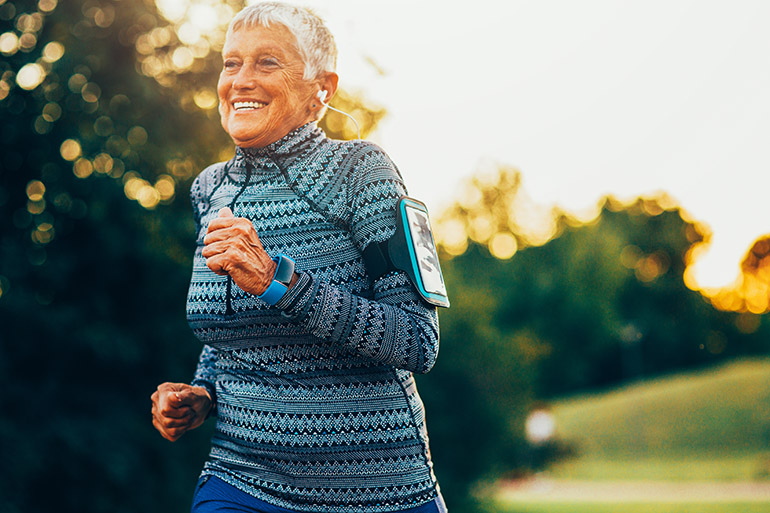
Most do not meet the bare minimum to remain healthy and independent
A UBC professor is trying to fix the disconnect when it comes to the amount of physical activity people older than 65 get on a regular basis.
Asst. Prof Gareth Jones, who teaches in the School of Health and Exercise Sciences at UBC’s Okanagan campus, says according to Statistics Canada fewer than 12 per cent of people 65 or older meet the minimum physical activity requirements to maintain health.
“It’s really quite sad,” says Jones. “We have developed physical activity guidelines and resources, but we haven’t gone far enough to figure out how to give this information effectively to the end users—this particular population group. It’s gut-wrenching that we have all these wonderful resources and really we haven’t been able to improve the physical activity levels for this age group during the past 10 years.”
The Canadian Physical Activity Guidelines for those 65 or older suggest a minimum of 150 minutes of moderate to vigorous aerobic exercise each week, plus at least two days of resistance training to strengthen muscle and bone. That is the absolute minimum that is recommended, says Jones.
There is a definite connection for people in this age group between physical activity and creating a level of protection from chronic disease, frailty and disability, says Jones. At this stage in life, meeting the established physical activity guidelines is crucial for maintaining health and physical independence.
Jones says after an eight-week trial he held four years ago, more than 76 per cent of the participants—who had received a weekly education program on physical activity, plus an exercise program completed three times a week—continued to meet the prescribed physical activity requirements one year after the study. In a second group not given the educational training, just exercise, the number who continued exercising dropped below 50 per cent.
That’s where physical literacy comes in.
“Physical literacy is the motivation, confidence, physical competence, knowledge and understanding to value and take responsibility for engagement in physical activities for life,” Jones explains. “What do they need to do to maintain functional independence as an older adult? We want to give them the motivation, confidence, skill competence and knowledge that can lead them to become physically active on their own.”
During his research, Jones worked with a multi-disciplinary collaborative working group from across Canada to come up with a consensus model to help develop physical literacy in this particular age group. The group developed a model, keeping in mind interpersonal, organizational, community, and policy variables can help in the promotion and adoption of physical literacy.
“We have to let them know why it’s okay to sweat, why exercising should feel hard, why they should be out of breath,” he explains. “When they become more educated, more literate, about the benefits then they are more likely to remain physically active.”
The next step, says Jones, is to examine physical literacy through sport participants in this age group to better understand what factors influence lifelong physical activity and sport participation.
“Masters athletes may provide insight into psychological and physical factors that enable long-term maintenance of physical activity and sport participation, and we hope to transfer these factors to the general population,” Jones says.
This research, partially funded by the Canadian Institutes of Health Research, was recently published through BMC Geriatrics.